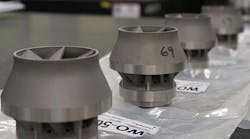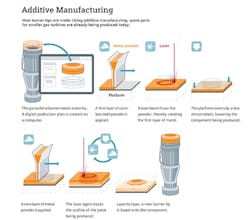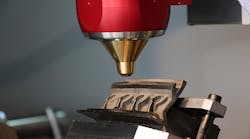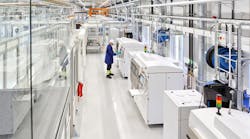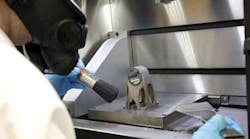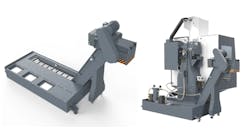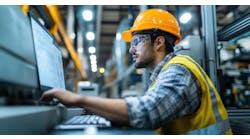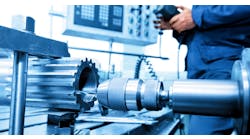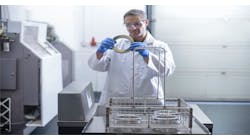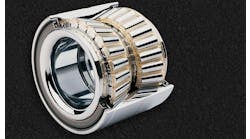Engineering group Siemens AG has acquired an 85% stake in Materials Solutions Ltd., an additive manufacturing company producing nickel-superalloy parts for land-based and aerospace gas turbines, and specialty steel and titanium components for aerospace systems and performance automotive systems. The value of the acquisition was not announced. Just over a year ago, Siemens made a “strategic investment” (14%) in the Worcester, England, company via its Siemens Venture Capital unit.
The remaining 15% stake will be held by Materials Solutions founder Carl Brancher.
Materials Solutions uses “selective laser melting” (SLM) to produce high-performance metal parts, principally turbomachinery parts for gas turbines, both land-based and aerospace turbines, parts for which dimensional accuracy and surface finish are critically important design details.
Brancher commented that his organization’s "know-how and experience will make a significant contribution to Siemens' Additive Manufacturing strategy. Materials Solutions is developing the applications know-how and a supply chain for the world's most advanced engineering companies – delivering processes and precision parts from 3D CAD models, using software, lasers and metal powders," he added.
Materials Solutions has 20 employees, and has multiple customer approvals for its additive-manufactured parts. Importantly, the operation is certified to AS9100, an aerospace sector quality standard.
According to Siemens, its new acquisition will continue to support external customers.
"With the acquisition of Materials Solutions, we are able to secure world-leading expertise in materials and AM process development with focus on high-temperature super alloys,” stated said Willi Meixner, CEO of Siemens Power and Gas Division. “The company's strength is to turn models into high-quality components in record time. Clearly, Materials Solutions fits perfectly within our vision for growth and application of advanced technologies within our Power & Gas portfolio."
Siemens already operates an additive manufacturing operation in Finspång, Sweden, for rapid-prototyping small fuel mixers, and performing rapid repair of burner tips for midsized gas turbines. Earlier this year, it started producing parts for commercial supply there, which it called the first step in its plans mass production and repair of metal parts using additive manufacturing.
